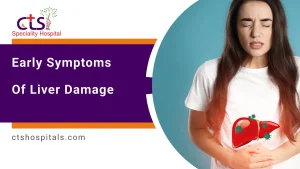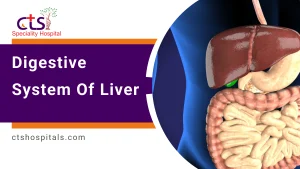The digestive system of the liver is fundamental to the body’s ability to process nutrients and detoxify harmful substances. The liver’s multifaceted roles include bile production, nutrient storage, and metabolism regulation. Understanding the digestive system of liver helps appreciate its vital functions and the importance of maintaining liver health.
Liver’s Functions in Digestion
The liver is a large, reddish-brown organ located in the upper right quadrant of the abdomen. It performs several critical functions within the digestive system, such as:
- Producing bile, which aids in the digestion and absorption of fats.
- Metabolizing carbohydrates, proteins, and fats.
- Detoxifying blood by removing toxins and harmful substances.
- Storing essential nutrients, including vitamins and minerals.
The digestive system of liver is integral to maintaining the body’s metabolic balance and ensuring efficient nutrient utilization.
Common Liver Disorders Affecting Digestion
Several liver disorders can impact the digestive system, leading to various symptoms and complications. Some common liver disorders include:
- Hepatitis: Inflammation of the liver caused by viral infections, alcohol abuse, or autoimmune diseases.
- Cirrhosis: Chronic liver damage resulting in scarring and impaired liver function.
- Fatty Liver Disease: Accumulation of fat in liver cells, often associated with obesity and metabolic syndrome.
- Liver Cancer: Malignant tumors originating in the liver, potentially disrupting liver function and digestion.
Recognizing and addressing these liver disorders is crucial for maintaining a healthy digestive system of liver.
Role of Pancreas and Liver in Digestion
The role of pancreas and liver in digestion is interconnected and essential for optimal digestive health. Both organs produce enzymes and substances necessary for breaking down food and absorbing nutrients.
Pancreas
- Produces digestive enzymes like amylase, lipase, and protease.
- Releases insulin and glucagon to regulate blood sugar levels.
Liver
- Produces bile, which emulsifies fats and enhances fat absorption.
- Metabolizes nutrients and stores glycogen for energy.
- Detoxifies blood by breaking down harmful substances.
Together, the role of pancreas and liver in digestion ensures that the body efficiently processes food and maintains metabolic homeostasis.
Use of Liver in Digestive System
The use of liver in digestive system is multifaceted, with several key functions that support digestion and overall health. These functions include:
- Bile Production: The liver produces bile, which is stored in the gallbladder and released into the small intestine to aid in fat digestion.
- Metabolism Regulation: The liver processes carbohydrates, converting them into glucose for energy or storing them as glycogen.
- Protein Synthesis: The liver produces essential proteins, including albumin and clotting factors.
- Detoxification: The liver filters and detoxifies blood, removing toxins and waste products.
The digestive system of liver plays a crucial role in ensuring that the body can effectively break down food and absorb essential nutrients.
Liver Health and Its Impact on the Digestive System of Liver
Maintaining liver health is vital for efficient digestion and overall well-being. Several factors can affect liver health, including diet, lifestyle, and medical conditions. To support liver health, consider the following tips:
- Healthy Diet: Consume a balanced diet rich in fruits, vegetables, lean proteins, and whole grains.
- Hydration: Drink plenty of water to help the liver flush out toxins.
- Moderate Alcohol Intake: Limit alcohol consumption to reduce the risk of liver damage.
- Regular Exercise: Engage in regular physical activity to maintain a healthy weight and support liver function.
- Avoid Toxins: Minimize exposure to environmental toxins and avoid smoking.
Understanding the digestive system of liver and implementing these health tips can significantly improve liver function and digestion.
Conclusion
The digestive system of liver is indispensable to the body’s ability to process nutrients and detoxify harmful substances. By understanding the liver’s functions, the role of pancreas and liver in digestion, and the importance of maintaining liver health, we can better appreciate this vital organ’s contributions to our overall well-being. Ensuring liver health through a balanced diet, regular exercise, and avoiding harmful substances can significantly enhance digestive efficiency and metabolic balance.




